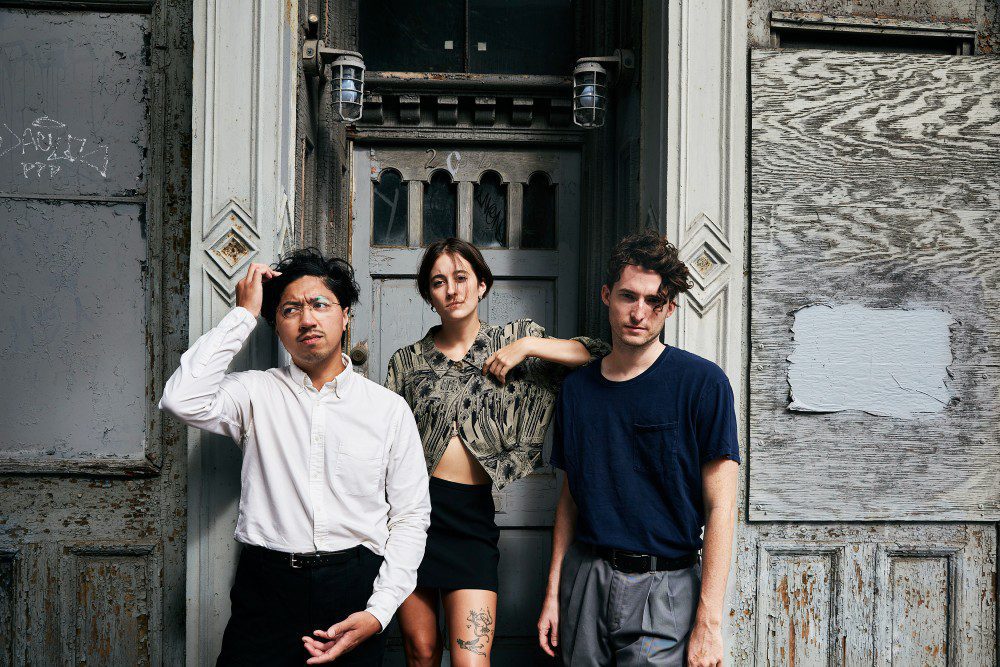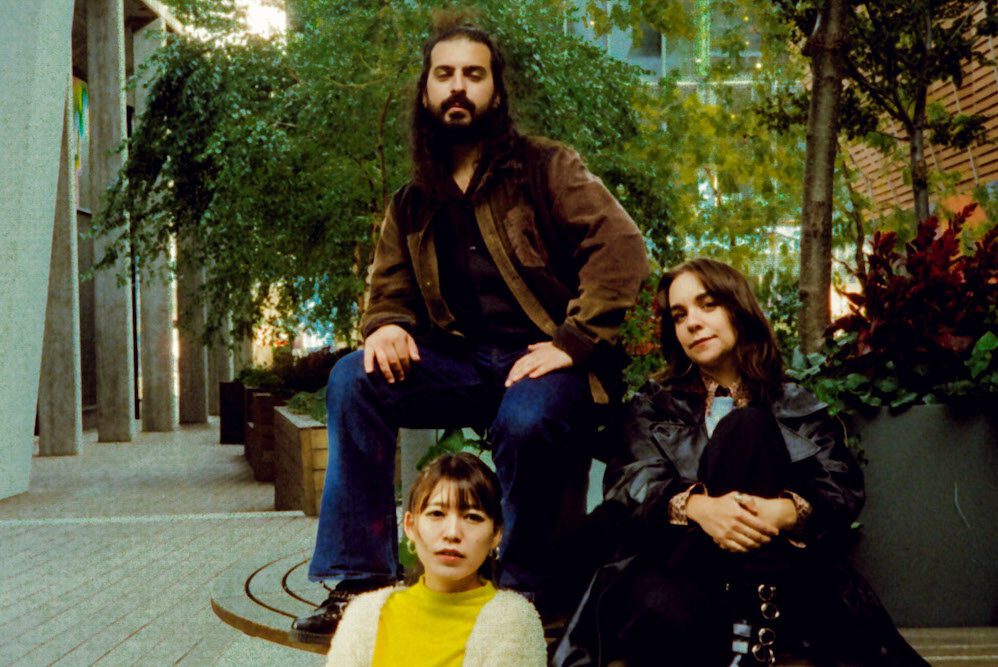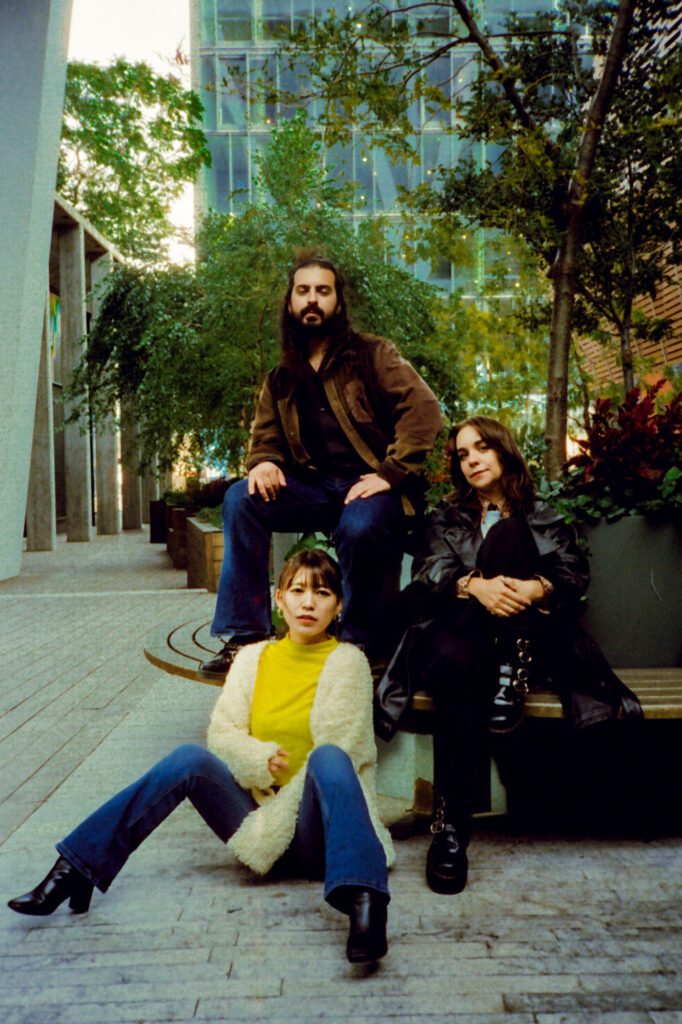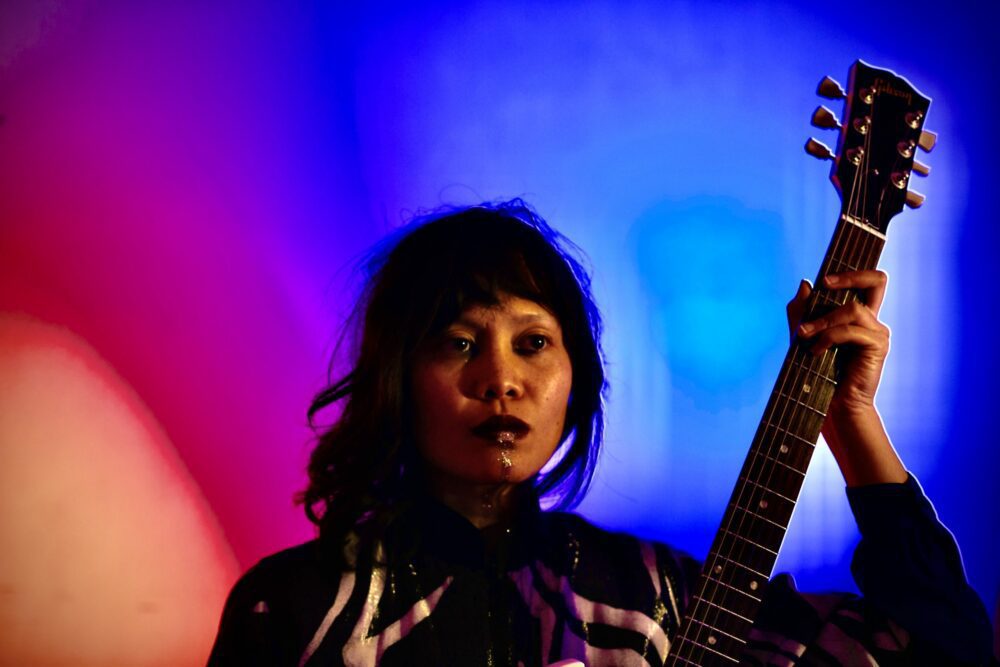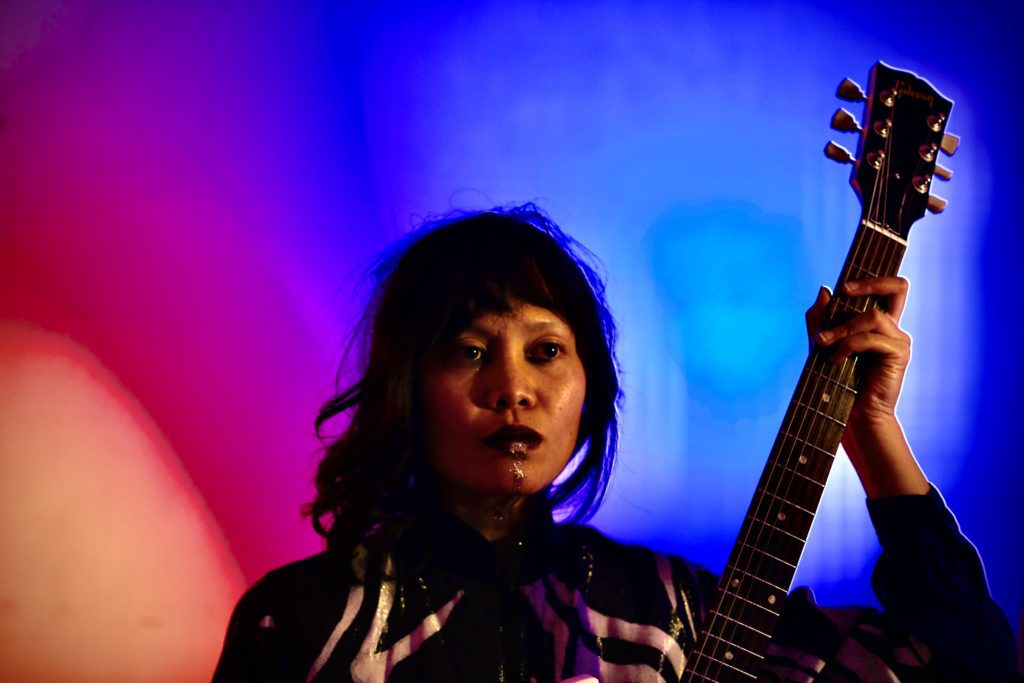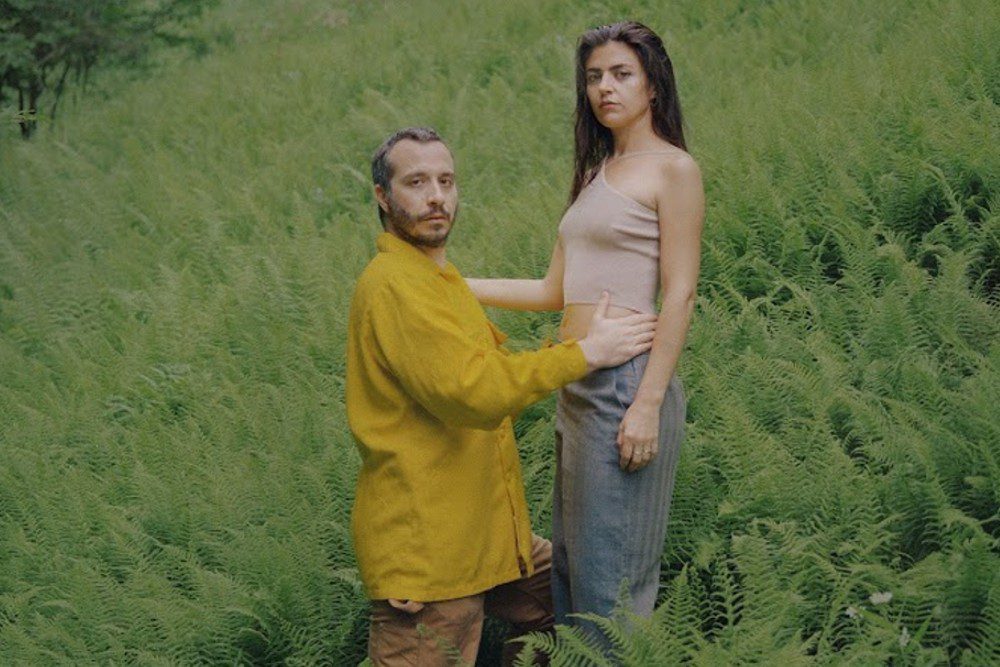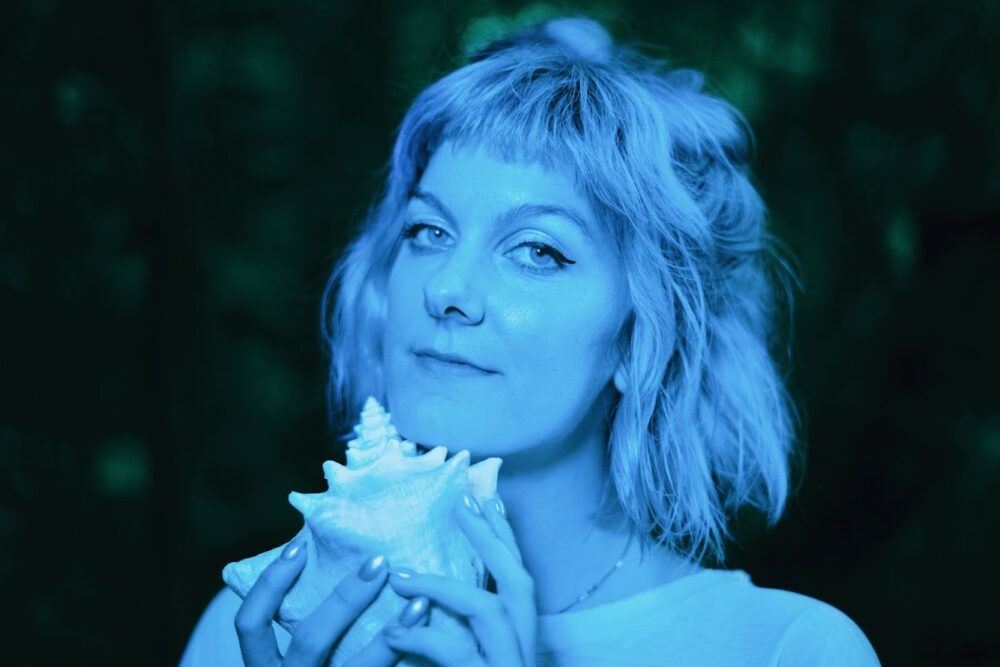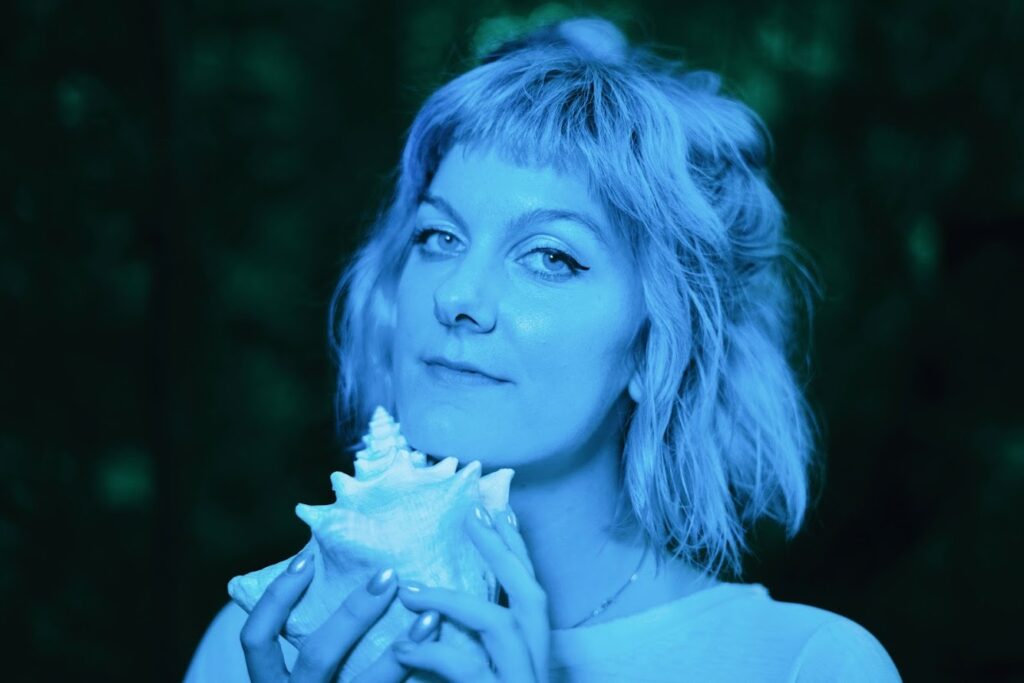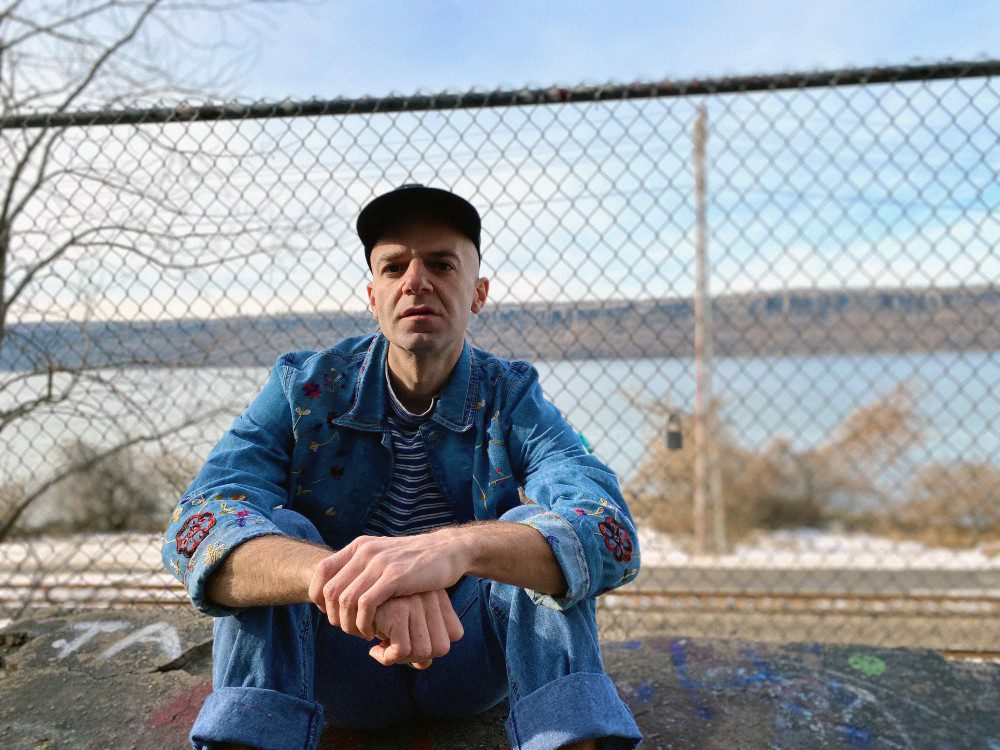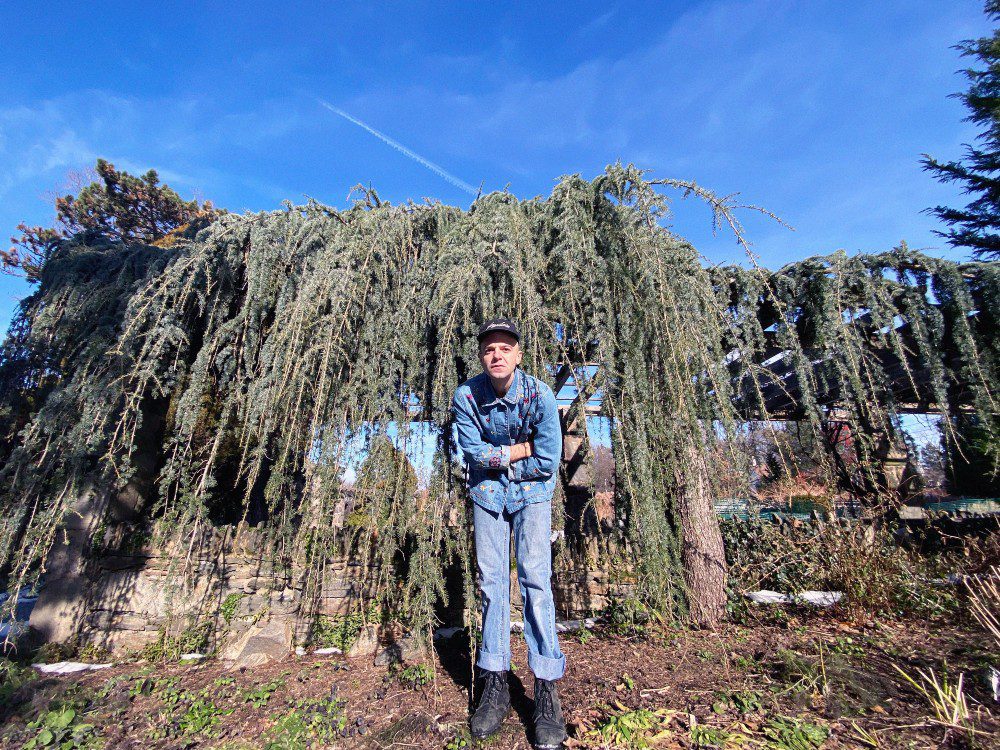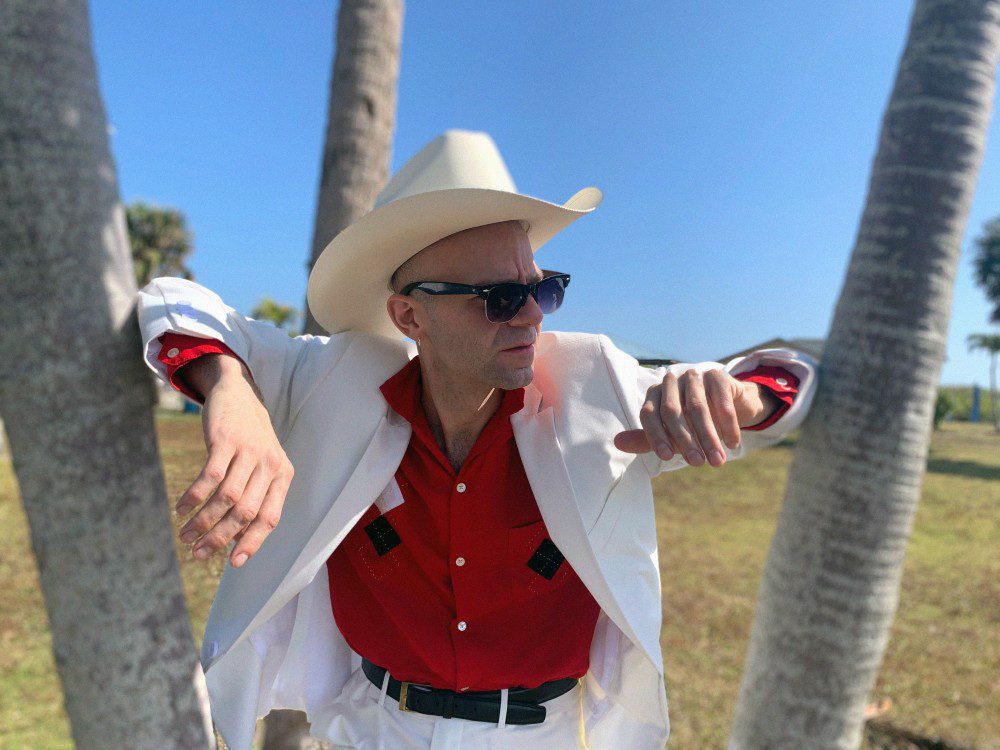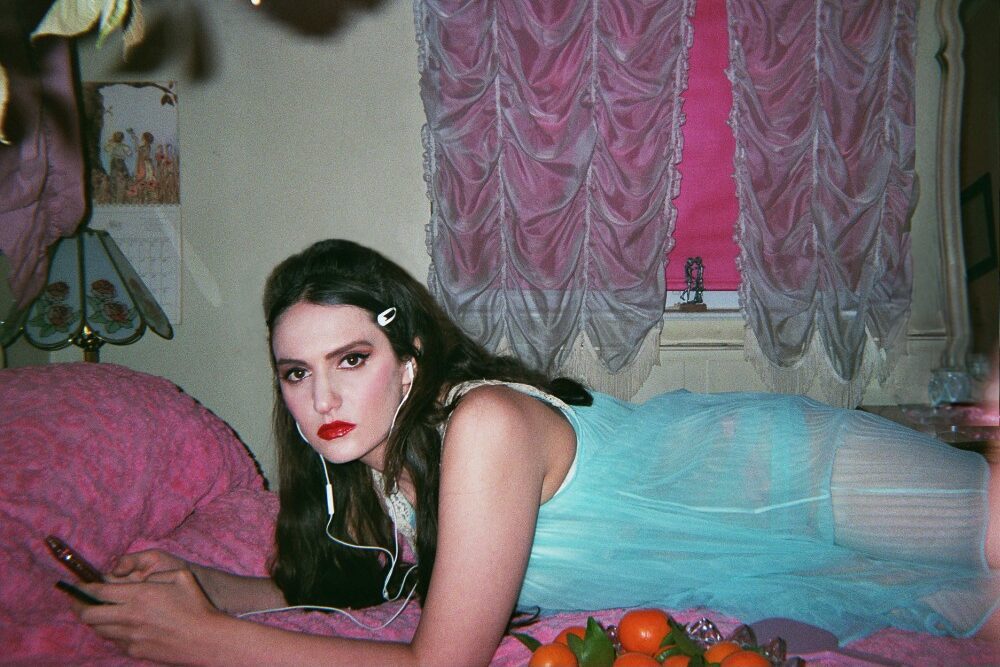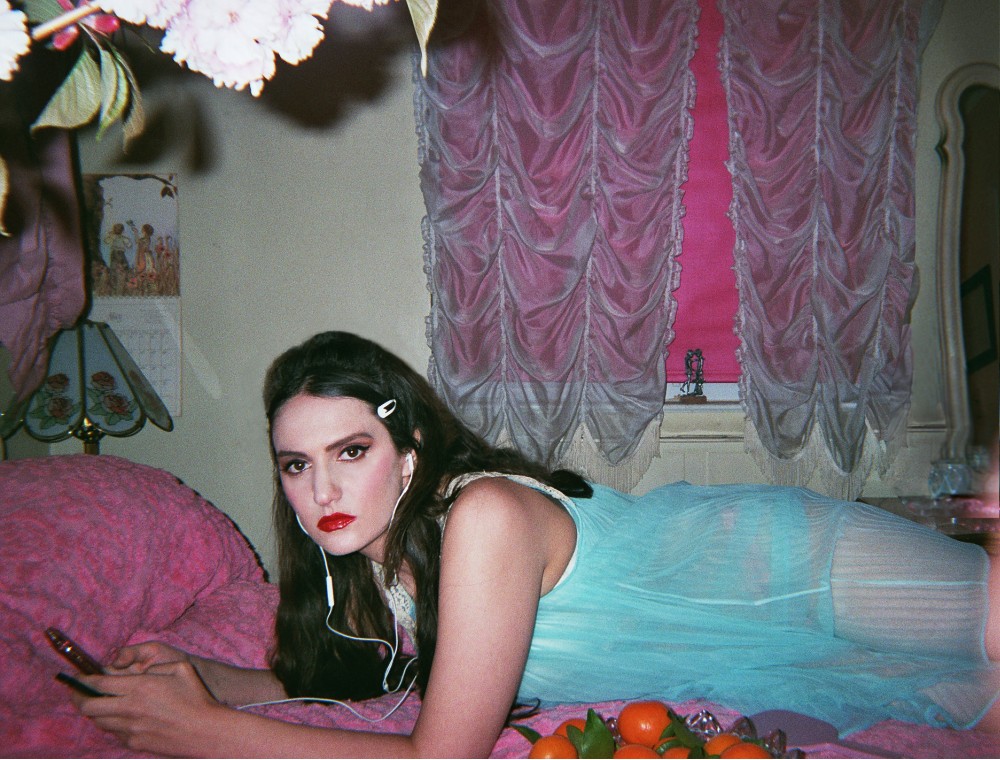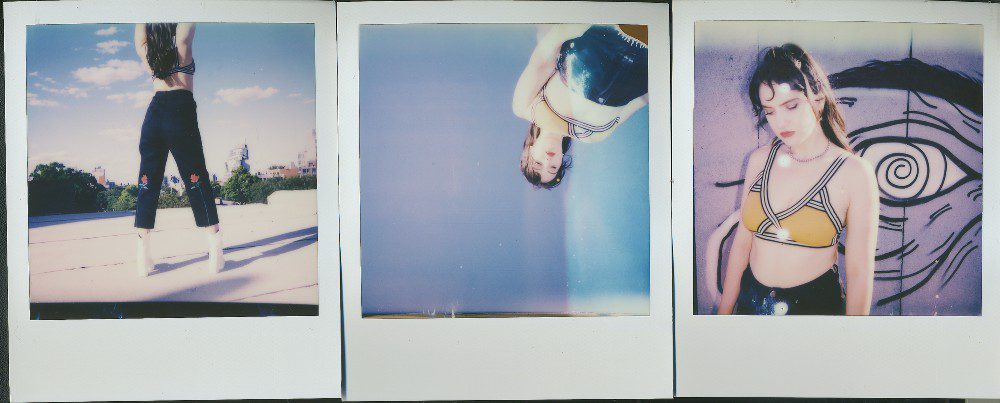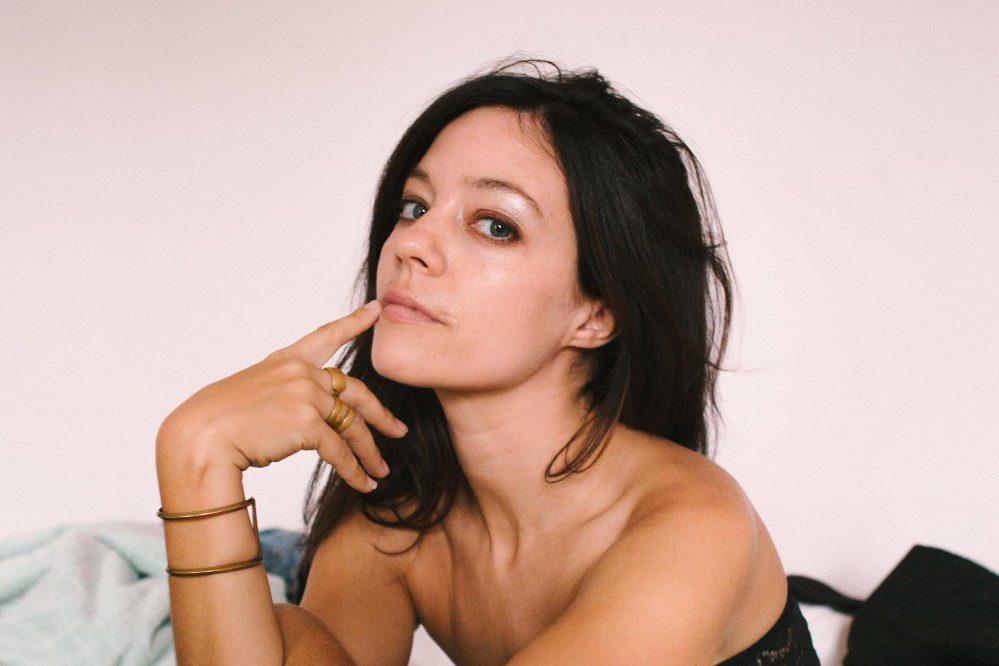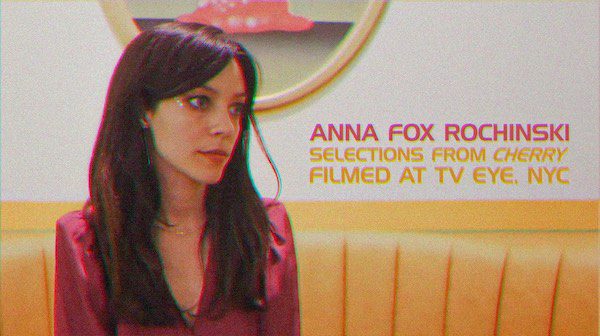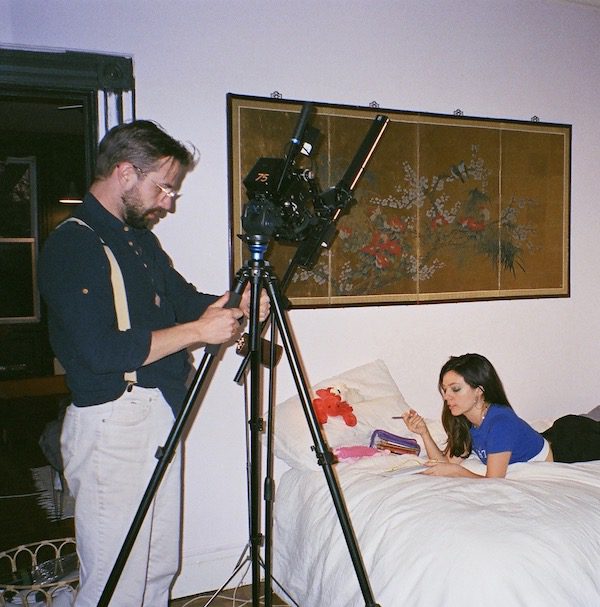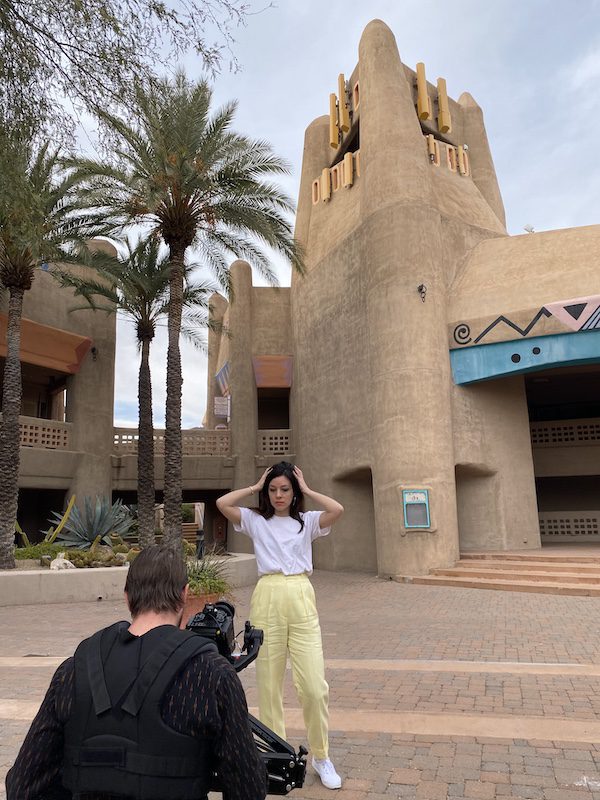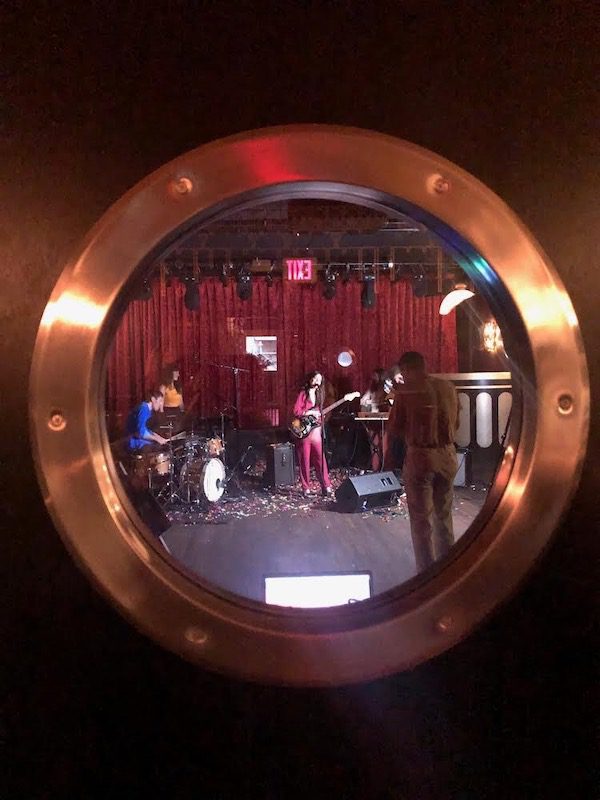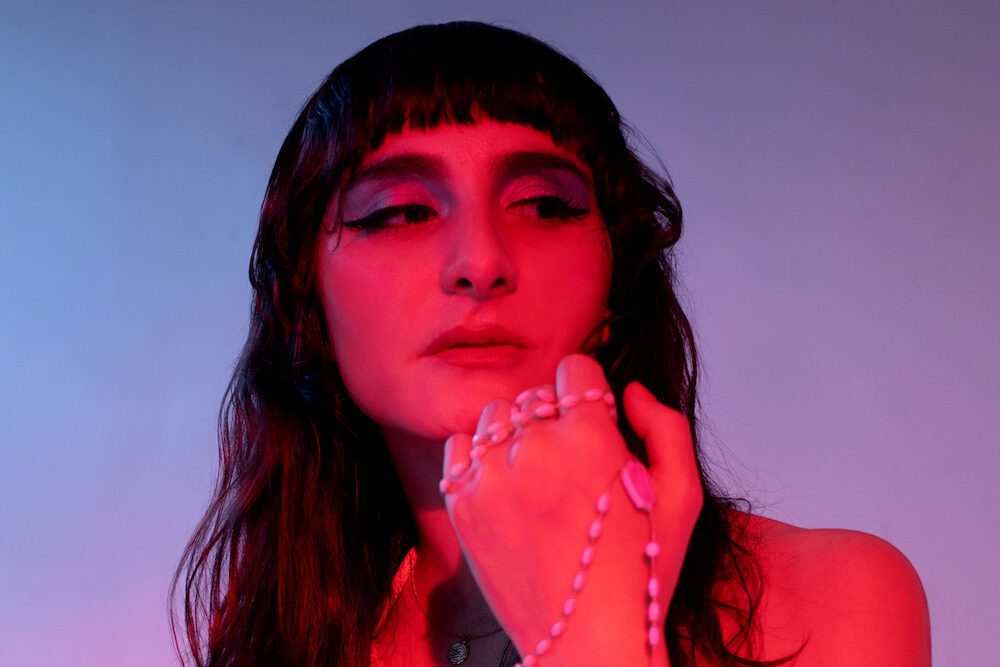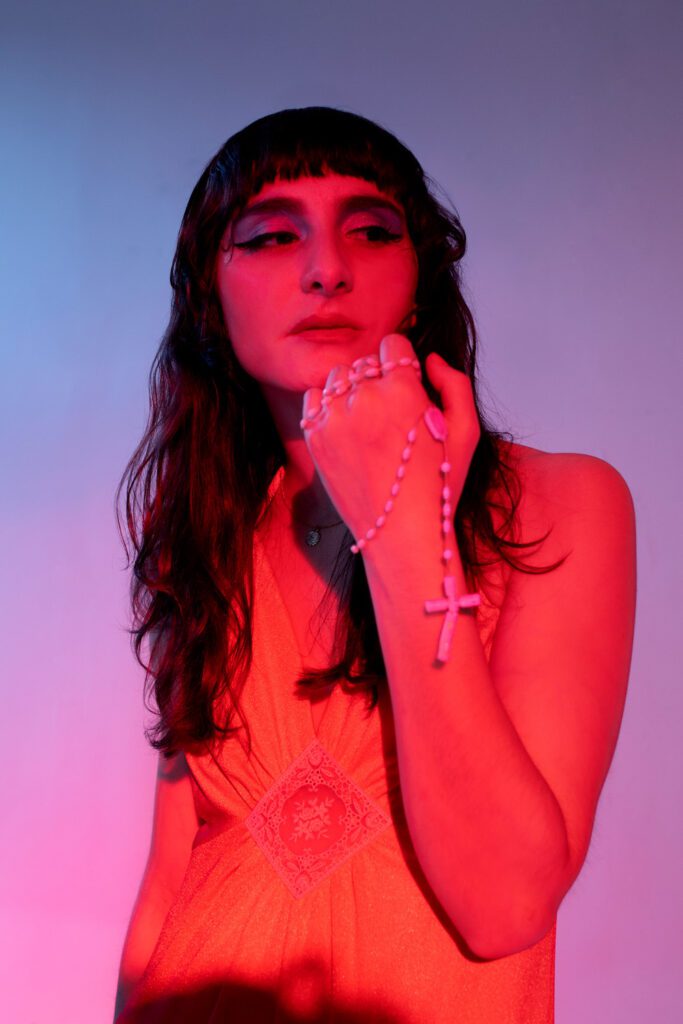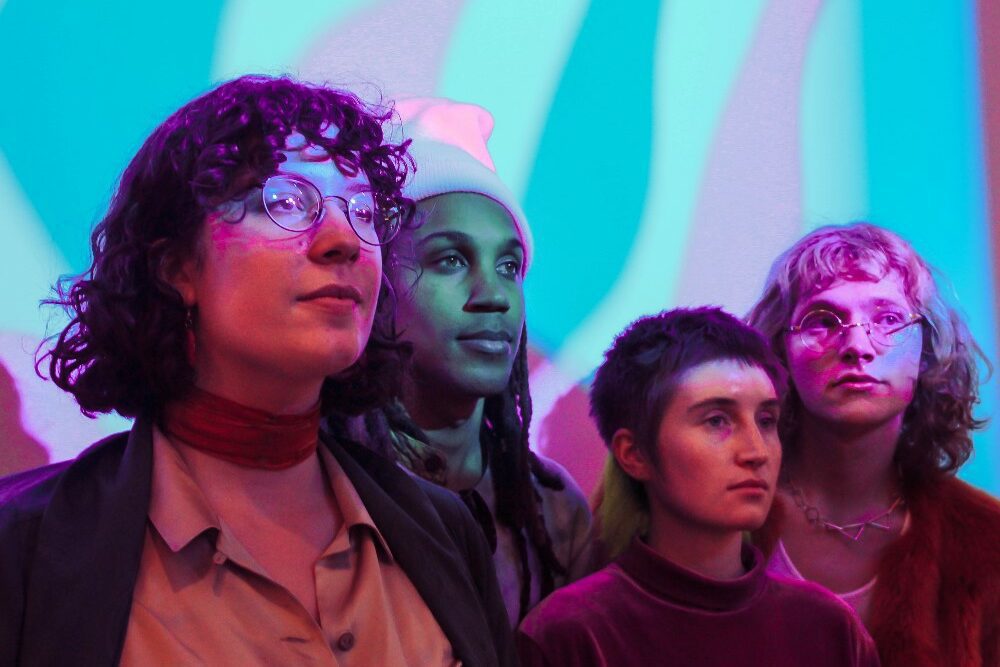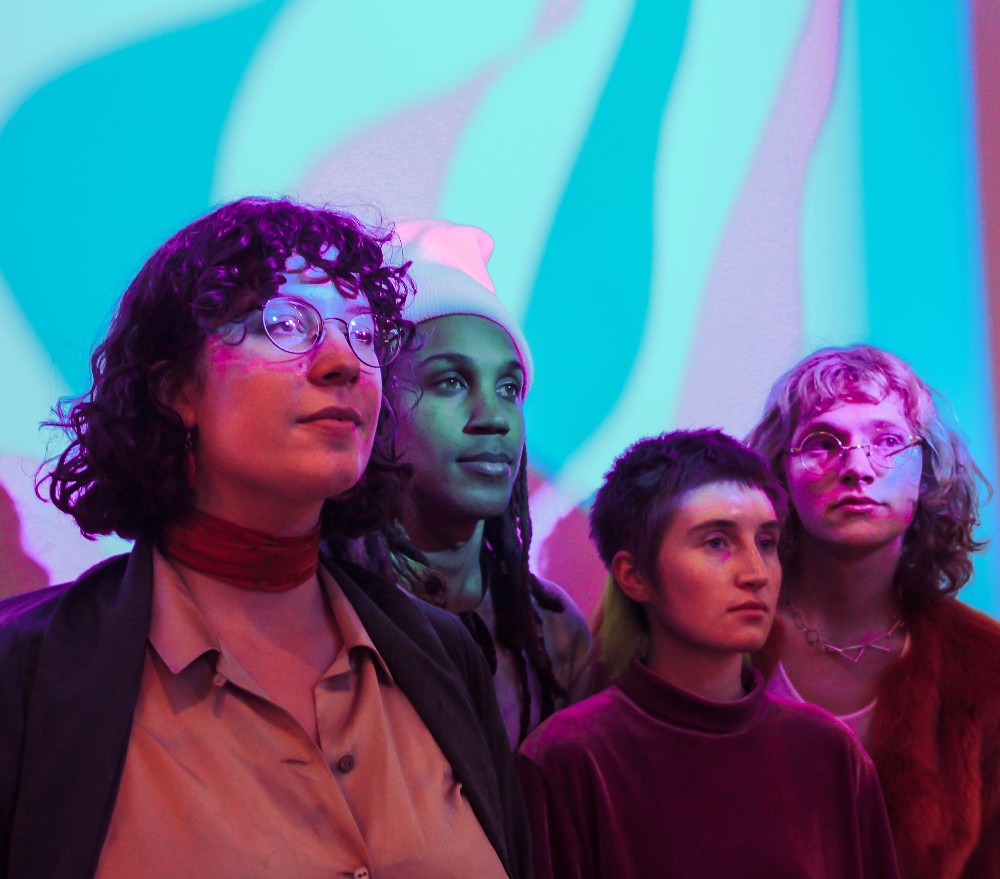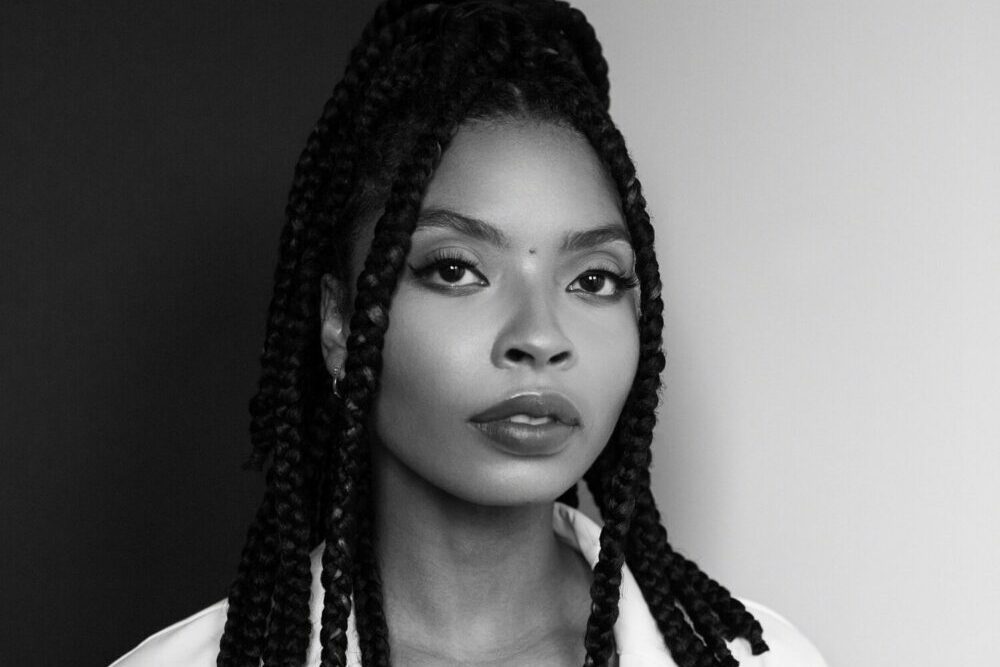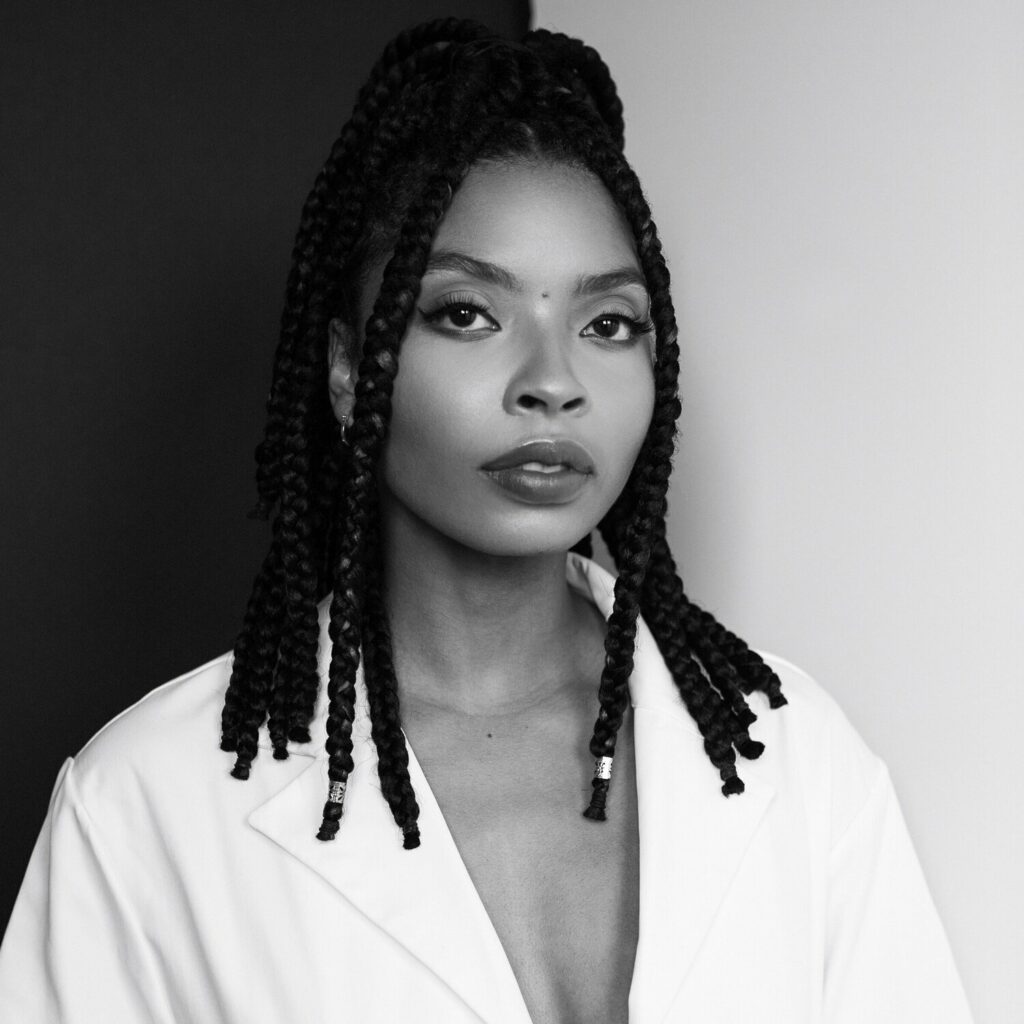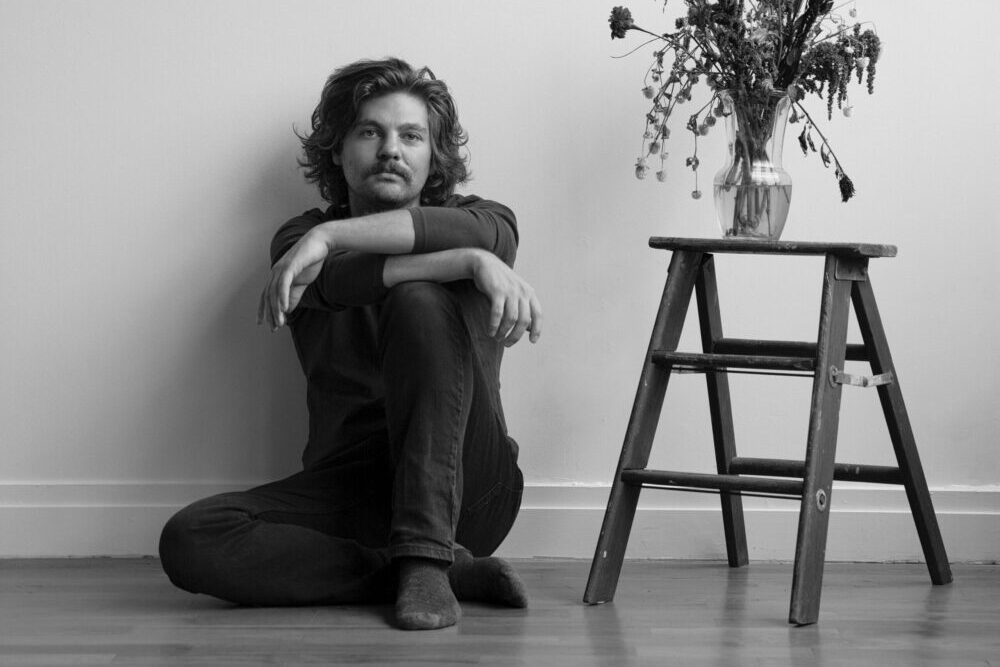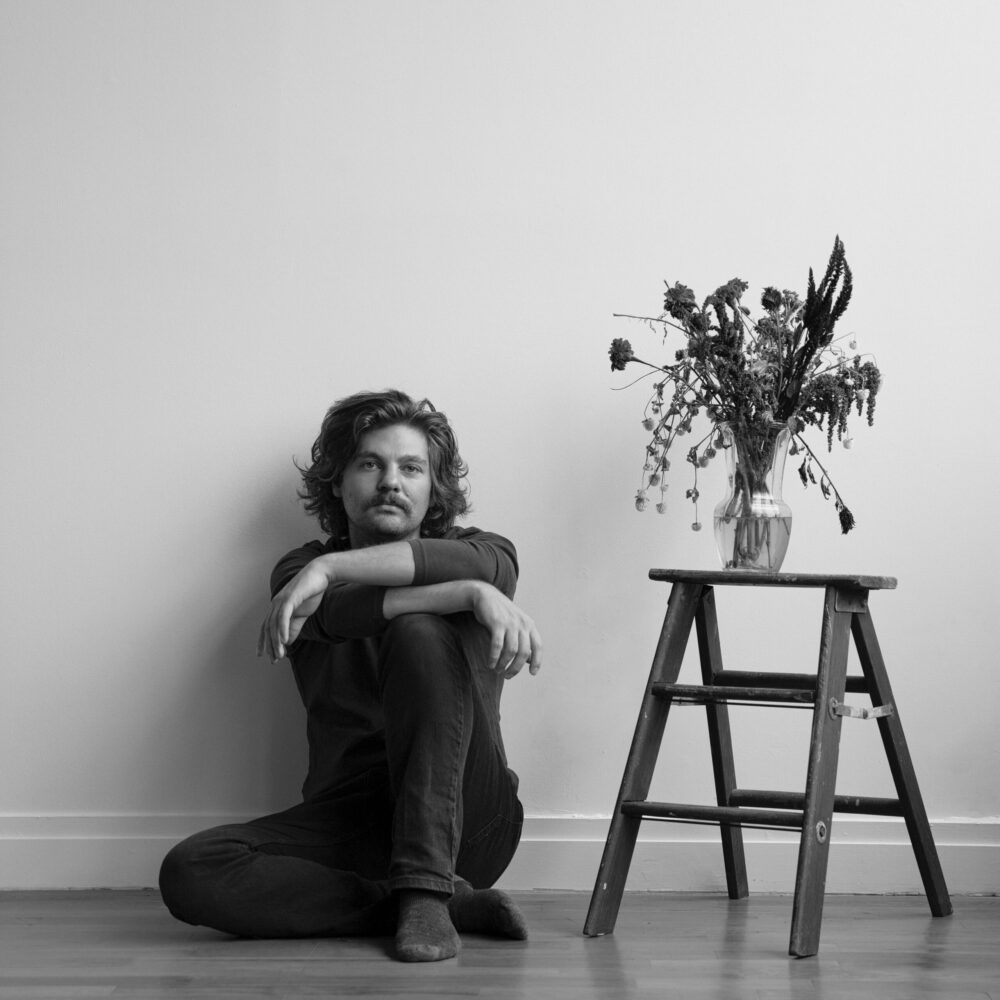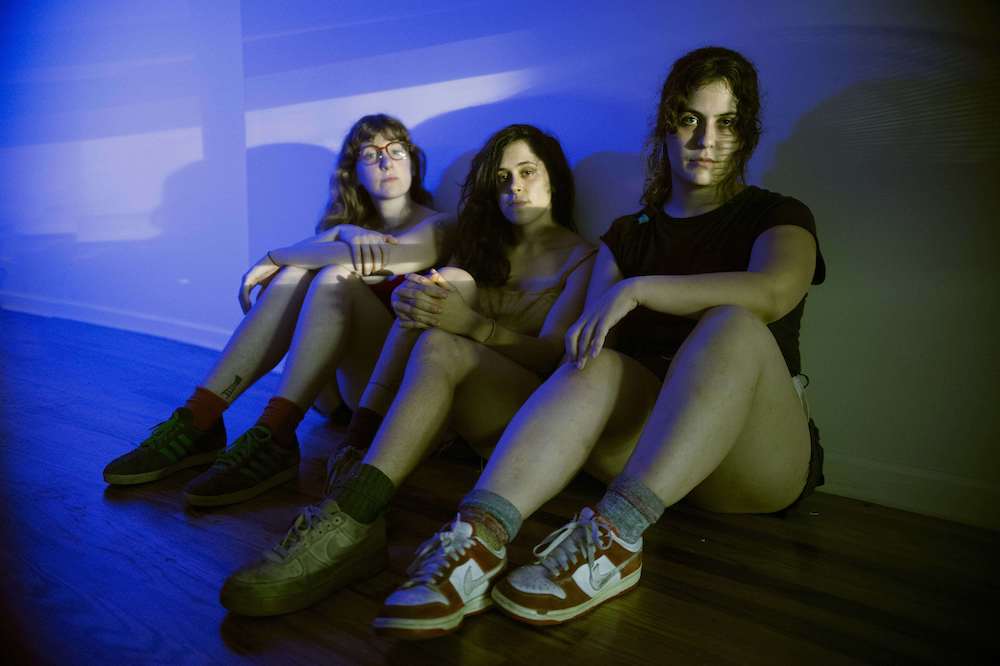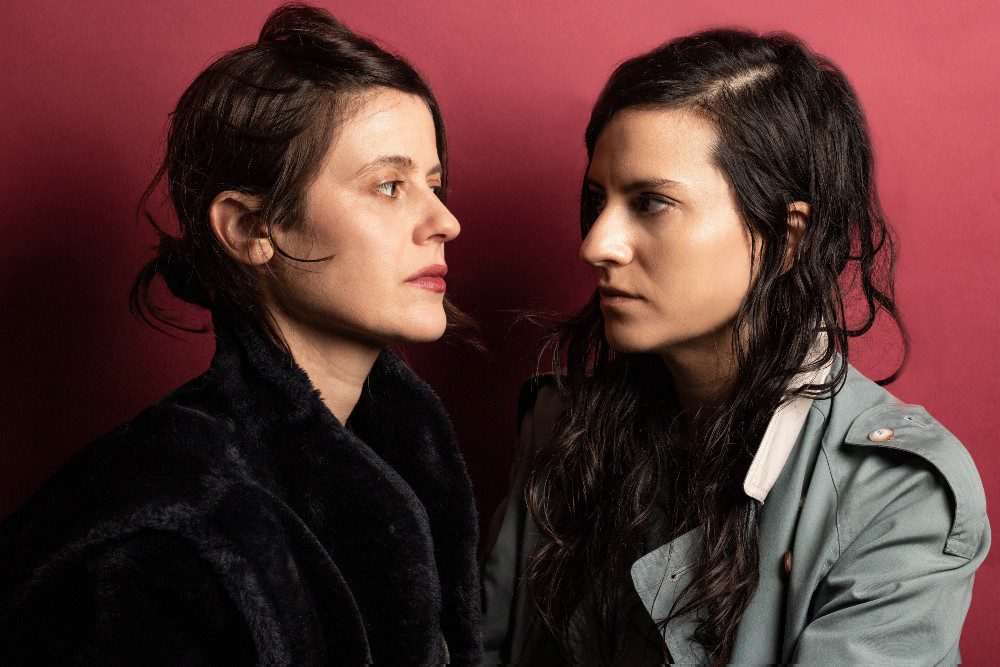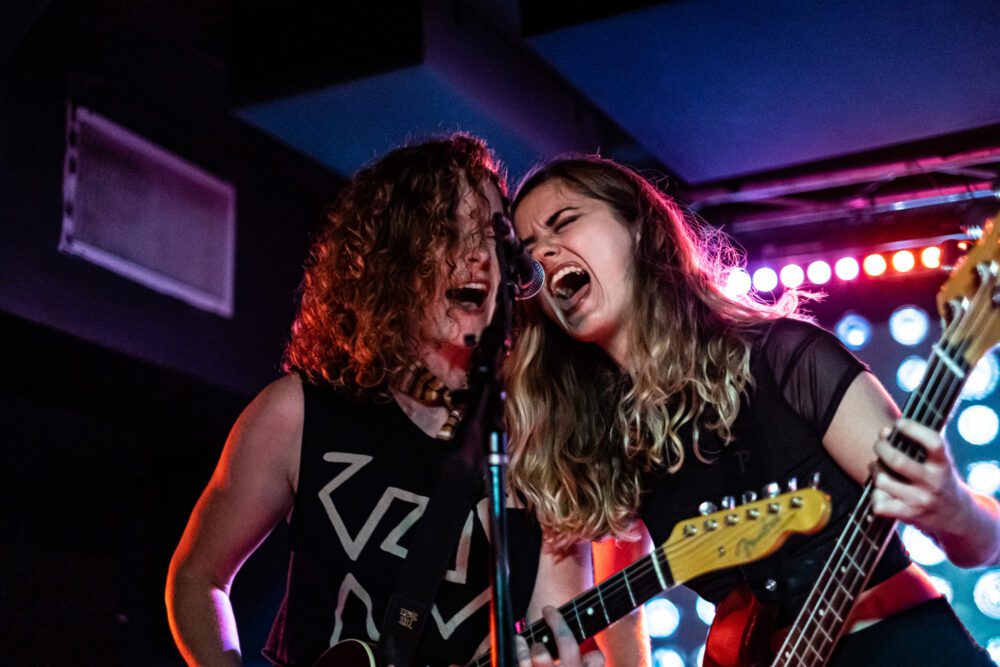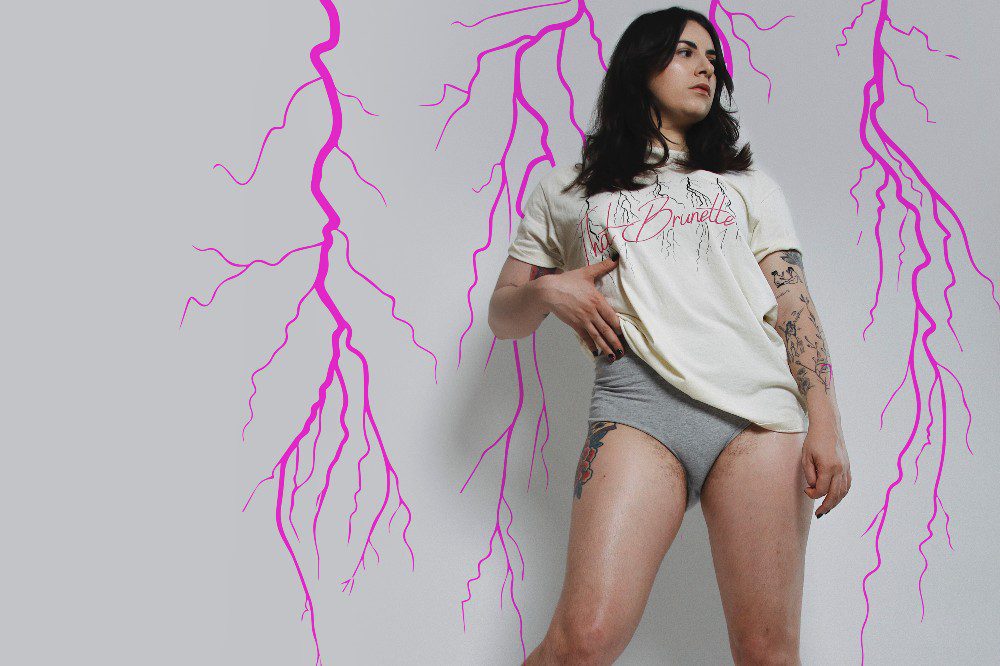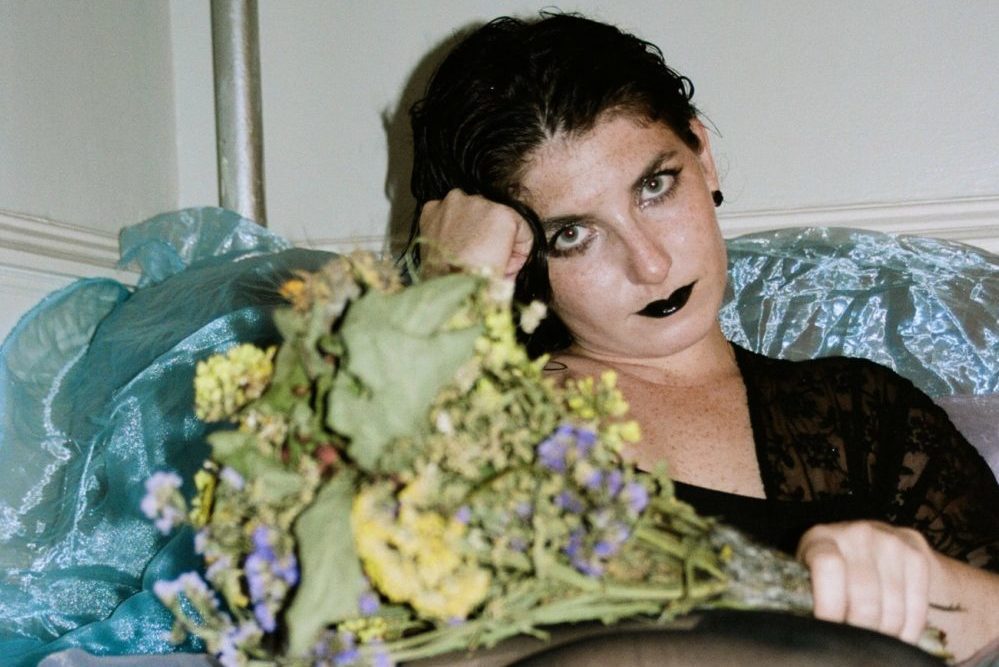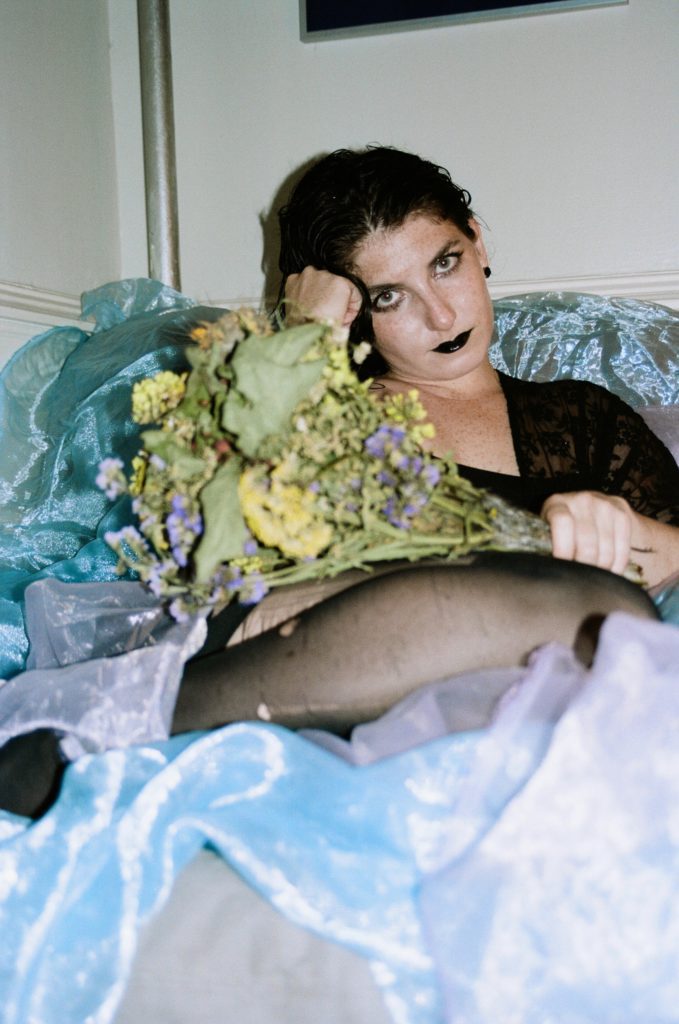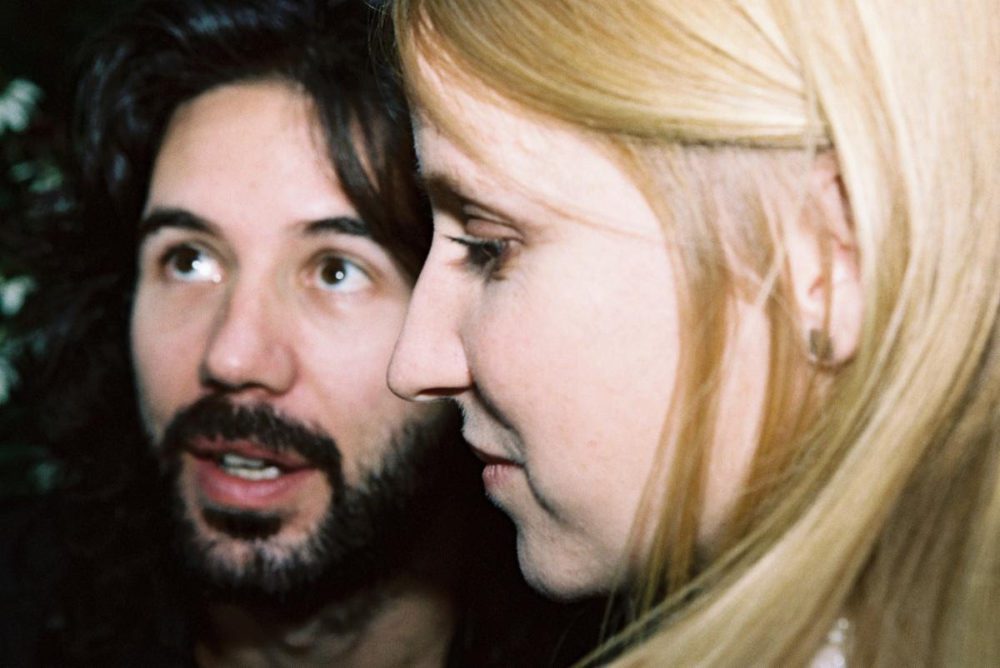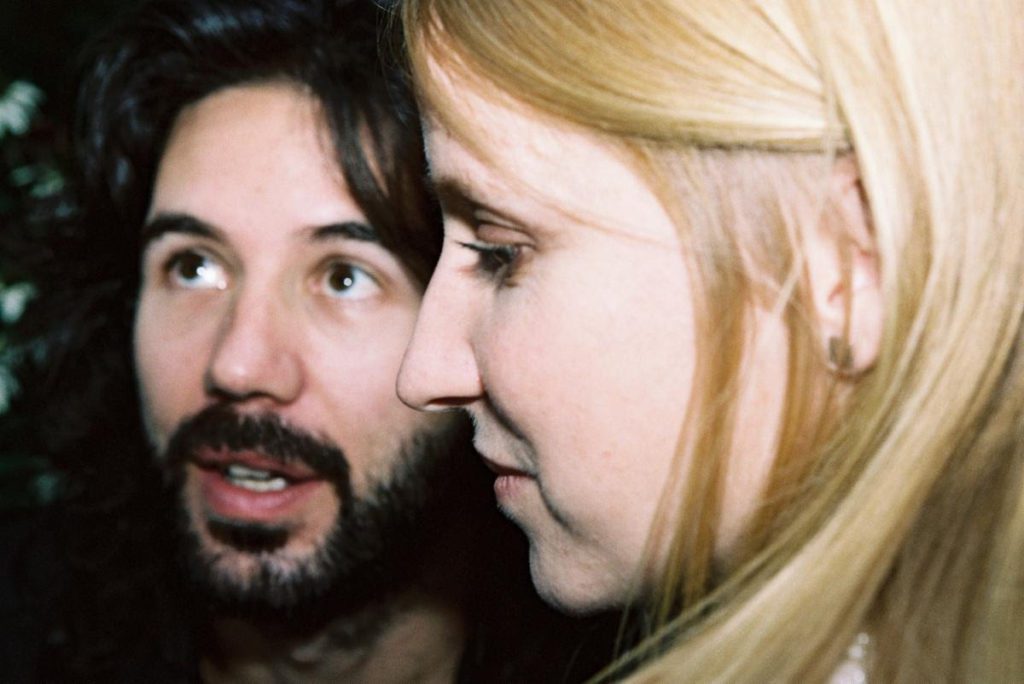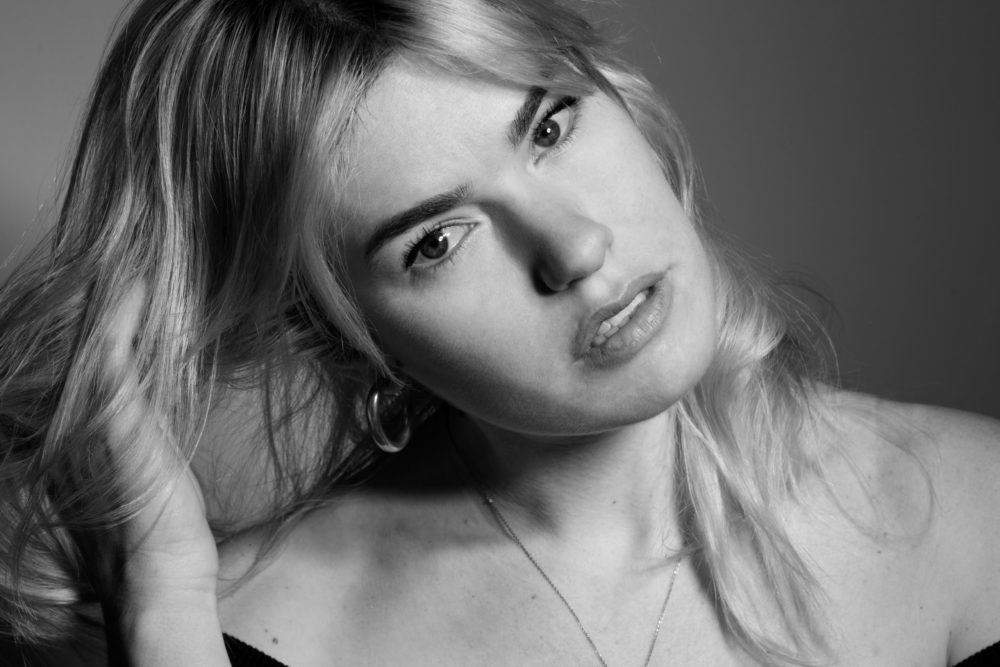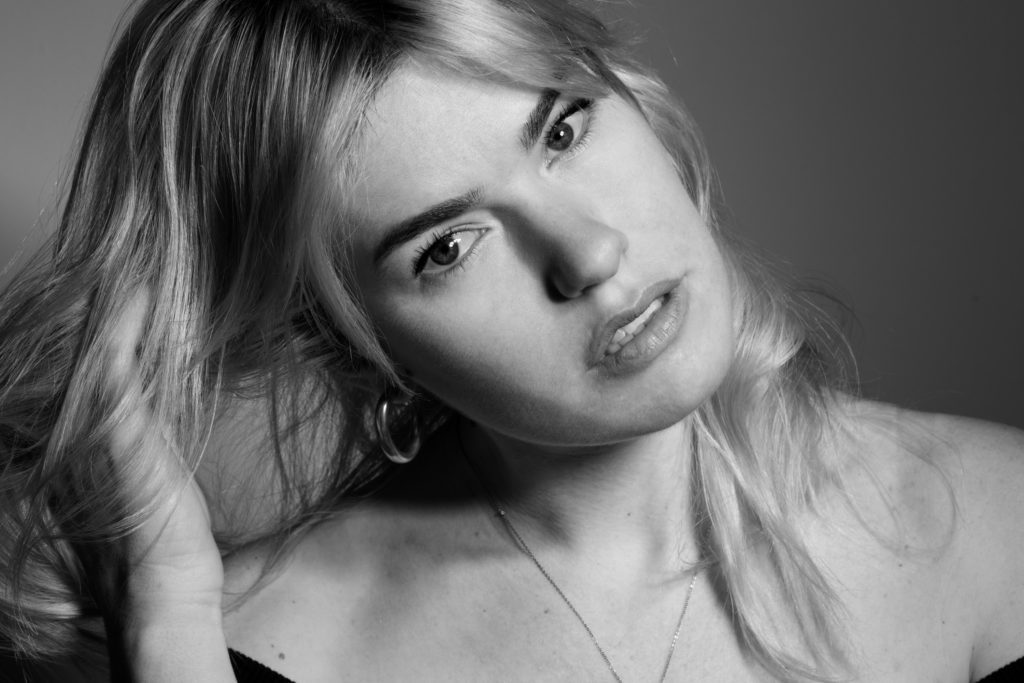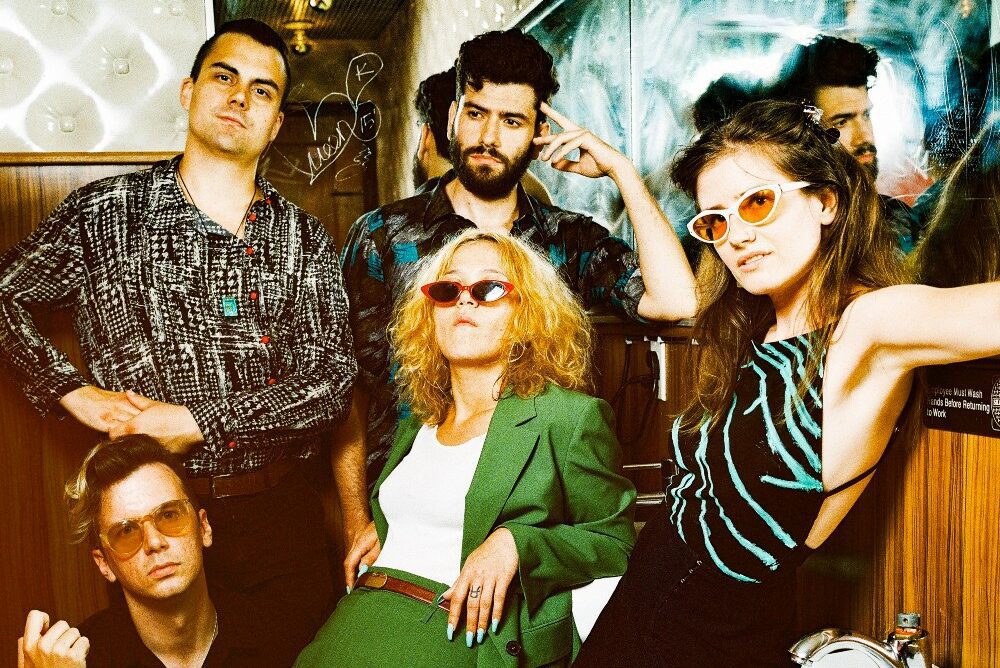
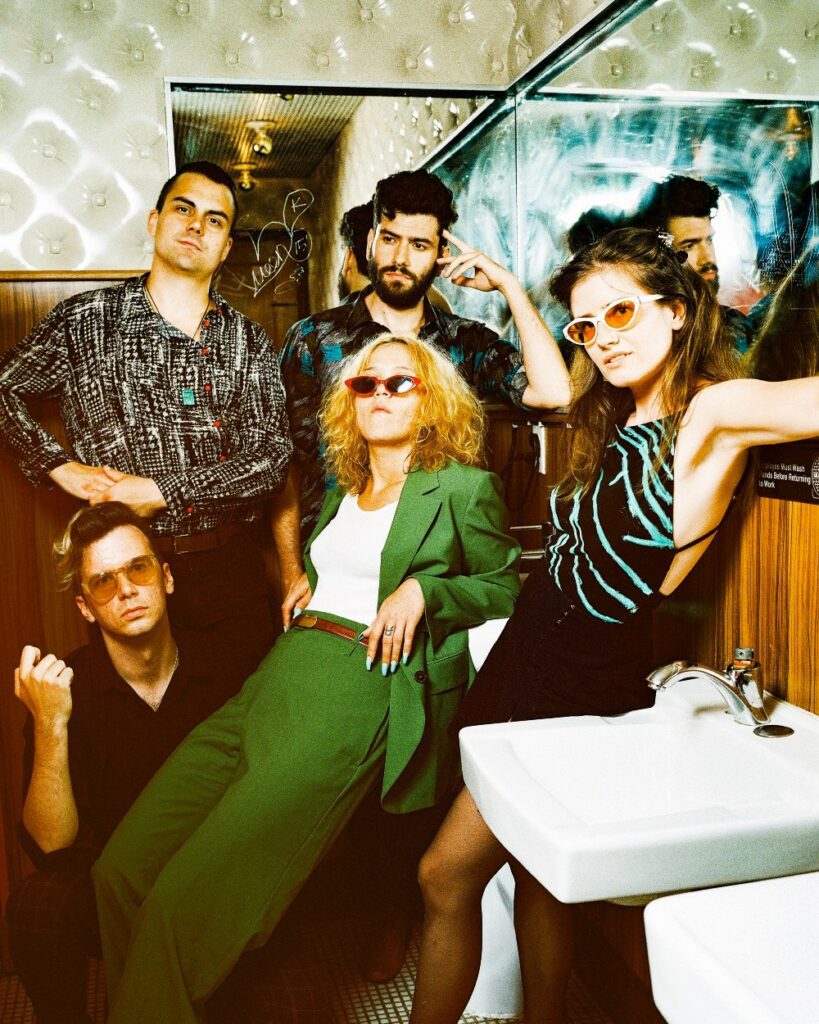
“It’s only when things break down does the presence of the thing reveal itself,” says “Bodega” Ben, a founding member of the Brooklyn “art-punk incendiaries” who release their new full-length record Broken Equipment today on What’s Your Rupture?.
He goes on: “What good art does is that it reveals these relationships we take for granted. And I like the pun of broken equipment too, because as artists, at least speaking for myself, we’re essentially damaged goods. We’re damaged people. We’re the jesters out in the world, and because of our pain – this is a gross oversimplification – but I think we can see things that not everybody can. We are broken equipment.”
The band borrowed the phrase from German philosopher Martin Heidegger, whose writings on technology and art and their interconnectivity with how we perceive the world loom large over this record. It all began with a philosophy book club, started in early 2020. The band had already written about a dozen new songs, but then the pandemic happened. Isolation allowed time for the ideas they had been grappling with to sink in. So they wrote more songs, and only about half of the originals made the final cut.
The beginning of the pandemic also brought with it some line-up changes, timing that proved serendipitous as it intersected with the formation of the book club. “De facto” book club leader Adam See is a philosophy professor, but also a bassist.
“I know him first and foremost as a friend from the music scene, but didn’t really get to know him until we started reading philosophy together,” Ben explains. “I figured out he played a lot more bass than I knew, so it was kind of amazing that he was able to slip into being in the band.”
“A band is a gang, and it’s nice to have everyone bring their own personality, but the gang is the sum of its parts. And our band had that in a musical way, but there was something really special about the book club in the sense that it was rejuvenating for all of us,” he says. “It’s really fun to return to the classics that we had all read as undergrads, but in a non-academic setting. And that sort of bookish nature has slipped over into the band in a way that I think is really fun, which is more important than any books we read. It was the idea of reading together.”
So back to Heidegger. He appealed to BODEGA in the way that he, as Ben says, “puts you back in contact with what it feels like to be present in your body.” They were particularly inspired by his essay “The Question, Concerning Technology,” wherein he writes about man’s relationship with technology.
“We tend to think of technology as this neutral concept,” Ben says. “When a tool’s invented, it’s neutral, people use it, whatever. But his whole idea is that you go back to when the Greeks first invented the word techne, what they were really coining was an ideology of man’s relationship to the world, as he uses the [phrase] ‘standing reserve,’ so seeing everything in the world as a standing reserve.”
What this essentially means is that technology is not at all neutral, as it directly informs our experience with the world we exist in. The “I” you once were fundamentally changed when you held that first iPhone in your hands.
“In modern life, we tend to treat our own friends as standing reserve. We tend to treat our own bodies as standing reserve,” he continues. “What can you do for me? There’s this transactional relationship to everything, that extends to inanimate objects as real people. I feel like that rhymed with a lot of BODEGA concerns.”
Which brings us back to Broken Equipment, a logical next title in a series of albums that deal deeply with the ways capitalism, technology and their intersections have shaped our identities and experiences as humans living in the 21st century: Endless Scroll (2018) and its live counterpart Witness Scroll (2019); Shiny New Model (2019). In a way, that’s what this band is about – they read Heidegger so you don’t have to. They break these weighty ideas down into something more digestible, more palatable even, so that they might transmute these ideas that concern them to others in a way they’ll actually consume.
Vocalist Nikki Belfiglio puts it this way, referencing the American essayist Ellen Willis: “The true prophets [in a communication crisis] are the translators. And I feel like in a sense artistry is like that. We show ourselves almost as prophets, in a pretentious way, but in the way of the true form of pretension, we try to be more than what we are.”
She continues: “What I’m trying to say is artists fulfill this role as translators, and are trying to communicate these things, like broken equipment, things that have broken down and are not yet noticed by society, or uncommunicated in a sense, other than on an art-making level.”
As far as artistic endeavors go, this sounds heavy, ambitious even. But they’re also having fun with it. Part of what makes Broken Equipment such a special record is how evident the love and fun that went into making it is. When they set out to write it, BODEGA was tired of being lumped in with third or fourth-wave post punk bands. They believe in allegiance to artists and songs, more so than genre.
“What we want to do is trace how consciousness is changing,” Ben explains, “[but] people say to us all the time, wow your band is so boring. We get it, I’m on my phone a lot.”
In this sense, you might even note the influence of Martin McLuhan here; on Broken Equipment, the media is the message. BODEGA is all about how the constant bombardment of outside influences shapes us in this over-inundated media landscape, and the ways art, music and media have shaped the band are overwhelming on this album. The influences are all over the chart here – you can of course see hints of other contemporary punk outfits like B Boys, and Ben’s vocals are at times reminiscent of Show Me the Body’s frontman Julian Cashwann Pratt, namely on tracks like “Thrown” and “Doers.”
Which makes sense, given that they infused their sound with a lot of ’90s hip hop sensibilities; artists like Run DMC and Eric B. & Rakim come to mind as you make your way through the record. Gasps of pop and classic rock puncture the noise as well; Nikki says she jokingly refers to album single “Statuette on the Console” as their “Sheryl Crow Ramones song.”
With this, the message comes through as genuine, and never preachy. On opening track “Thrown,” Nikki shouts “Watch the thrown,” a warning as it were, to be on guard for all images and content the world will throw at you today. Ben jumps in to list the many ways he’s “thrown” by the world around him, “big rock ads” and “the itch on my back.”
We’re never free, and neither is BODEGA. But the band practices radical acceptance on Broken Equipment, allowing the many factors that influence them to seep together into something greater than its parts. There’s very little any of us can do on our own to stop the progress of technology as it snowballs more and more insidiously into our lives, for better or for worse. The best you can do is be conscious of it, and with that, maybe even have a little fun with it.
Follow BODEGA on Facebook and Instagram for ongoing updates.

